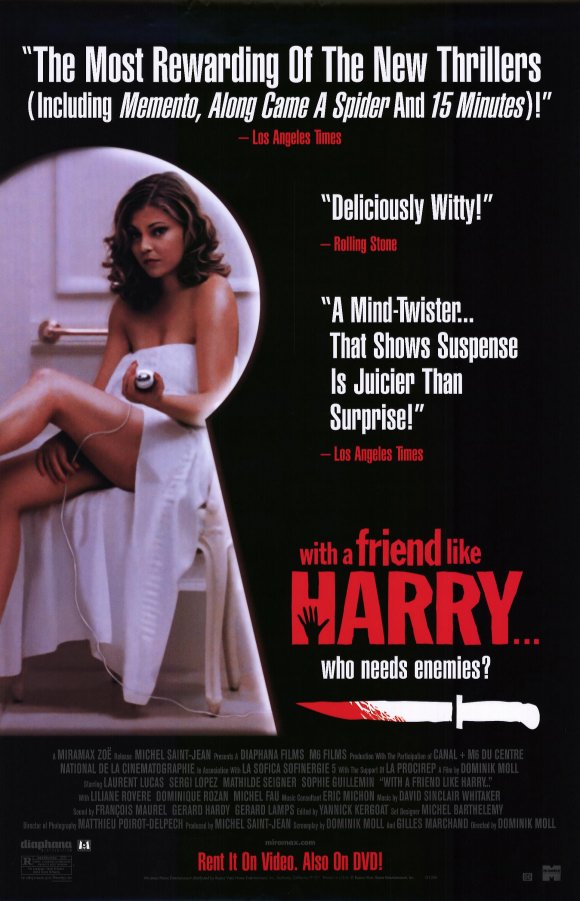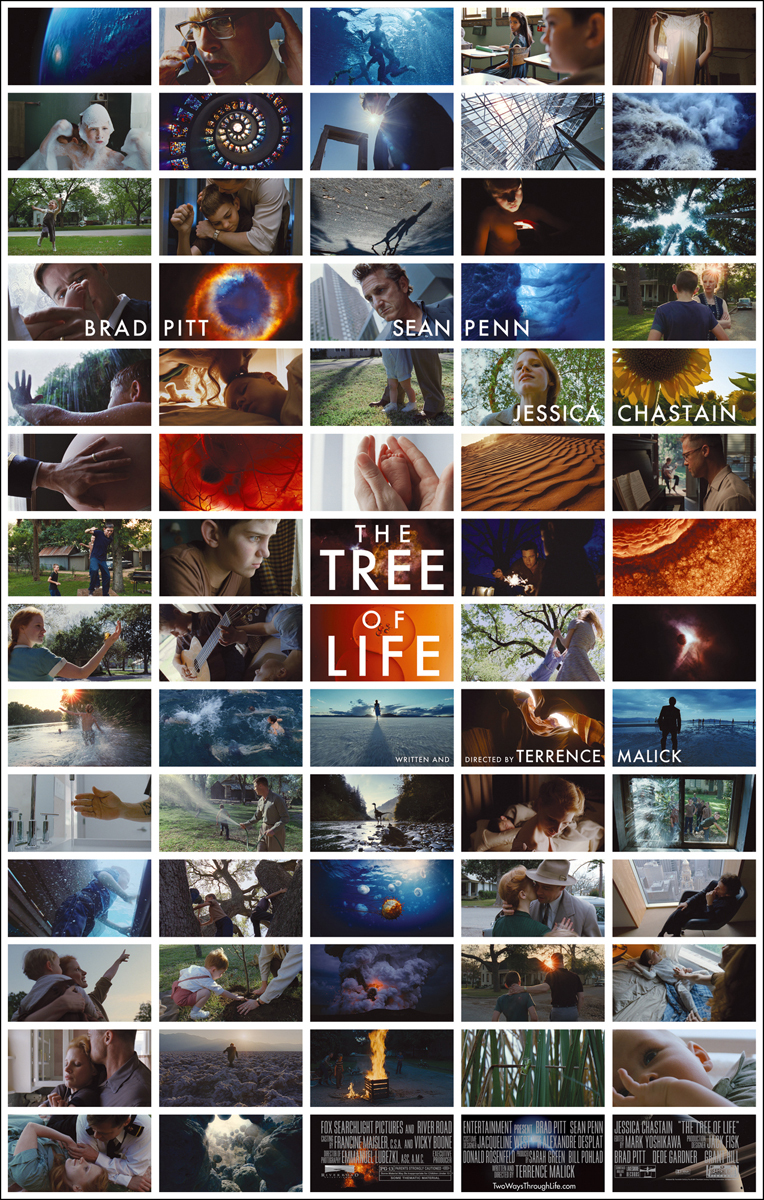

Director: Brad Furman, 2011. (R)
Despite the American judicial concept of “innocent until proven guilty” we often see a person arrested for a heinous crime and assume he or she is guilty. The state has built a case and arrested the person with due cause. Our allegiance tends to fall with the state, even though they have the burden of proof. The defense attorney is either a slick shyster or filthy rich from defending the wealthy criminals. The Lincoln Lawyer plays off this cliche while dealing with themes of innocence, injustice and evil.
Mick Haller (Matthew McConaughey) is the Lincoln lawyer. He conducts his business out of the back of his Lincoln Town Car while being driven from client to client by Earl his driver. He epitomizes sleazy, defending bikers and prostitutes who he knows are guilty. He works the system, and is not above greasy a few palms to get the “Not Guilty” verdict to match his car license plate.
When Louis Rollet (Ryan Phillipe), a 30-something realtor, is accused of raping a prostitute, he asks Haller to defend him. Mick’s meal ticket has arrived, and he promptly starts laying out the expense account. Rollet claims he is being set up, and Mick sends his trusty investigator Frank Levin (William H. Macy) to dig up the dirt. But he digs up more than he wants and suddenly nothing is as it seems.
 The Lincoln Lawyer is based on the book by Michael Connelly. A film cannot capture the details of a 400 page novel, and this one is no exception. There is little to explain why Haller uses the Lincoln. His backstory is not described, except for his simmering relationship with his ex-wife Maggie “McFierce” McPherson (Marisa Tomei). She is one of the LA District Attorneys, on the opposite side of the fence from him. Hence the “ex” in their relationship. But their daughter keeps them on speaking terms.
The Lincoln Lawyer is based on the book by Michael Connelly. A film cannot capture the details of a 400 page novel, and this one is no exception. There is little to explain why Haller uses the Lincoln. His backstory is not described, except for his simmering relationship with his ex-wife Maggie “McFierce” McPherson (Marisa Tomei). She is one of the LA District Attorneys, on the opposite side of the fence from him. Hence the “ex” in their relationship. But their daughter keeps them on speaking terms.There are twists and turns aplenty in this taut crisp thriller. The flashbacks tend to be a little confusing at times, but the attentive viewer will remain engaged. McConaughey brings his A-game, showing he is more than just a pretty face. His cynical front slowly melts as the truth confronts him. Phillippe is perfect as the innocent-with-an-attitude rich kid who wants to be put on the stand to get his story told. Tomei doesn’t have a lot to do except encourage Mick, an odd concept from a DA to a defense attorney.
 The ethical themes emerge when Mick gets one-on-one with Roulet. He senses injustice. Injustice is the violation of the rights of others. But the injustice seems to be against an earlier client. And the attorney-client privilege, which prevents him from disclosing anything Roulet tells him, puts him into a precarious position.
The ethical themes emerge when Mick gets one-on-one with Roulet. He senses injustice. Injustice is the violation of the rights of others. But the injustice seems to be against an earlier client. And the attorney-client privilege, which prevents him from disclosing anything Roulet tells him, puts him into a precarious position.The dilemma here is how a person avoids injustice if justice (or the law) itself disallows that very same person from seeking redress. It would be wrong to break the law but by not breaking the law the law itself has been broken. It is a paradox, and the beauty of the film is how Mick works this out. The secret is to find the limits of the law and use them, while staying safely within the confines.
Moreover, Mick’s character growth is evident. Initially, he is happy to work a little subtle bribery. But by the end he sees the cost of injustice. He almost exemplifies the words of Habbakuk to God (Hab. 1:3): “Why do you make me look at injustice? Why do you tolerate wrongdoing? Destruction and violence are before me; there is strife, and conflict abounds.” He struggles to right the wrongdoing, and in so doing finds his own plumb line reset correctly.
 At one point Mick confesses his lifelong fear, of representing someone truly innocent. He shielded his conscience by assuming that all his clients were guilty. But, he says, “You know what I used to be afraid of? That I wouldn’t recognize innocence. Not guilty or not-guilty. But pure innocence. That it’d be standing in front of me and I wouldn’t know it. You know what I am afraid of now? Pure evil?” He had been forced to face his fears and came away with a view of evil.
At one point Mick confesses his lifelong fear, of representing someone truly innocent. He shielded his conscience by assuming that all his clients were guilty. But, he says, “You know what I used to be afraid of? That I wouldn’t recognize innocence. Not guilty or not-guilty. But pure innocence. That it’d be standing in front of me and I wouldn’t know it. You know what I am afraid of now? Pure evil?” He had been forced to face his fears and came away with a view of evil.Evil resides in the world. Evil lies inside all of us (Jer. 17:9). Most of us restrain it for the most part, covering our sinful heart with a sugar candy coating. But some allow the purest form of evil to emerge in their psychopathic practices and are proud of it. Theirs is close to demonic. Such a personality scared Mick and it should scare us, too.
As the Lincoln Lawyer reaches its climax, we hope beyond hope that justice will prevail. In Hollywood it usually does. In life it often seems to be thwarted. Yet when we realize that God is the true Judge (Psa. 75:7), we also understand that he judges in his time: “with the LORD our God there is no injustice or partiality or bribery” (2 Chron. 19:7). We just may have to wait to the other side of eternity for the full impact of justice to be realized. Meanwhile, with a defense attorney like Jesus Christ our guilt can be turned into a not-guilty verdict. As the apostle John said, “we have an advocate with the Father—Jesus Christ, the Righteous One. He is the atoning sacrifice for our sins, and not only for ours but also for the sins of the whole world” (1 Jn. 2:2).
Copyright ©2011, Martin Baggs


father-bride-movie-2.png)











